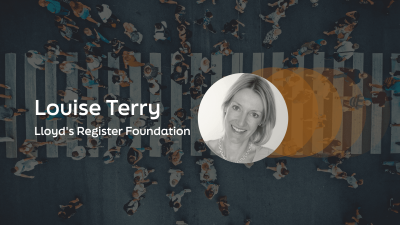
Improving access to redress for workers vulnerable to violence and harassment in South Asia
Experts discuss the factors that make some workers more vulnerable than others to violence and harassment.
This page is approximately a 3 minute read
This page was published on

As a proud member of Lloyd’s Register Foundation's Advisory Council, I have been looking forward to seeing the results of their ambitious research project, ‘The Lloyd’s Register Foundation World Risk Poll, in partnership with Gallup. It is the first global research of its kind to uncover what people in 142 countries think are the greatest threats to their safety and the findings, along with the demographic variances, are fascinating and will serve as a vital tool for decision makers.
The research was carried out just before the world was poleaxed by Covid-19 and so provides a snapshot of what we all worried about then. It confirms many challenges we already knew needed to be addressed and the extent to which they affect people’s lives today: the fact that so many people face danger in their working lives; the fact that women fear sexual violence at work in so many countries; the fact that people in countries affected by climate change, live in fear of climate change.
Perhaps the timing is serendipitous because 2020 could prove to be the year where a point of inflection was reached in the way we live our lives, a turning point where we become more conscious of the consequences of our choices. It was surprising to read in the report that agriculture is one of the most dangerous ways to earn a livelihood. I wonder how many of us consider risk to human life in the supply chain when we browse the supermarket shelves.
Has Covid forced us to hit the Pause button?
For me, the most interesting aspect of the research is that it strikes right at the heart of the most important topic of them all: Trust.
Who do we trust to keep us safe? Do they deserve our trust? Whose interests do they serve? How do we measure and reward the people who lead us? Do they act with the right level of short and long term interests?
Now, more than ever, with enormous challenges such as climate change and inequality, we need to be able to trust institutions and organisations to make the right decisions. That means taking into account a broader range of stakeholders than before and taking responsibility for the whole ecosystem in which they operate. It also means making decisions that deliver in the long term, not just the short term, and behaving with integrity, respecting all people and the planet. Business and governments need to demonstrate to us that they are trustworthy.
This research will be carried out again in 2021. I wonder what we will be worrying about then. Global pandemics will surely make it on to the list and I can only hope that women might one day be able to live without fear of sexual violence in the workplace, which is such a depressingly recurring theme.